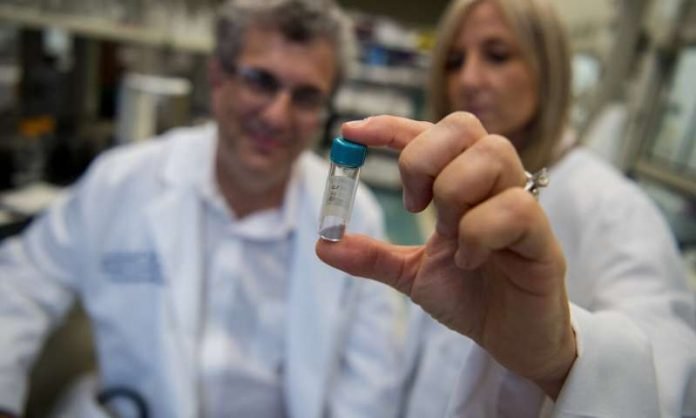
In a new study, researchers found a new compound that blocks glutamine metabolism can slow tumor growth.
This can alter the tumor microenvironment and promote the production of durable and highly active anti-tumor T cells.
The research was conducted by Johns Hopkins scientists.
The drug, a “prodrug” version of the glutamine antagonist DON, was designed so that the active form of the drug is functional within the tumor.
In theory, this compound could be used across a wide spectrum of cancer types, due to the critical role of glutamine in promoting the metabolism necessary for prodigious tumor growth.
In the study, the team tested the DON prodrug, dubbed JHU083, in mice models of colon cancer, lymphoma, and melanoma.
They found the treatment with JHU083 led to a big decrease in tumor growth and improved survival in many different cancer models.
In a number of the mice, treatment with JHU083 alone led to durable cures. These cures were facilitated because the metabolic therapy unleashed the natural anti-tumor immune response.
When the researchers reinjected these cancer-free mice with new tumors, they found that almost all the mice rejected the new tumor.
This suggests that the new JHU083 treatment had produced a powerful immune memory to recognize and attack new cancer.
The team says by targeting glutamine metabolism, they were not only able to inhibit tumor growth and change the tumor microenvironment, but also alter the T cells in a way that could enhance immunotherapy for cancer.
In future studies, the team wants to examine how JHU083 combines with different types of immunotherapy to explore whether certain tumors can overcome the metabolic trap laid by the drug.
One author of the study is Jonathan Powell, M.D., Ph.D.
The study is published in Science.
Copyright © 2019 Knowridge Science Report. All rights reserved.



